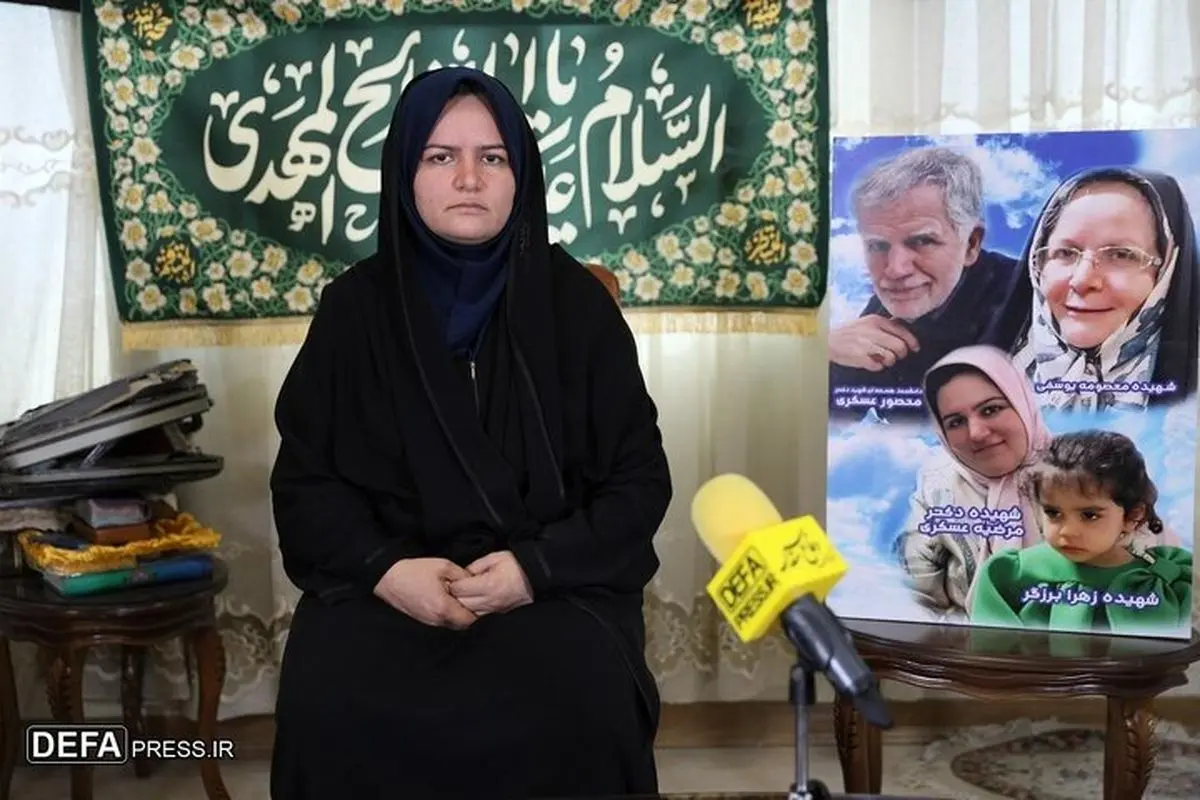SAEDNEWS: A devastating Israeli airstrike on Chamran Town destroyed a six-story building, killing Iranian nuclear scientist Mansour Asgari, his wife, daughter, and three-year-old granddaughter. His surviving daughter, Fatemeh Asgari, recounts the attack and her family’s scientific and personal legacy.

The family of nuclear scientist Mansour Asgari was killed following a brutal attack by Israeli forces on Block 12 of Chamran Town.
According to Defa Press, the victims included Asgari’s wife, Masoumeh Yousefi, a retired faculty member of Payame Noor University; his daughter, Marzieh Asgari, a neonatal specialist and faculty member at Tehran University of Medical Sciences; and his three-year-old granddaughter, Zahra Barzegar.
In an interview, Fatemeh Asgari, daughter of the slain scientist, spoke about the tragic event and the professional and personal life of her father and other family members.
Recalling the morning of the attack, Fatemeh stated: “On Friday, 23 Khordad, the Israeli regime targeted Block 12 of Chamran Town. Six floors of two towers completely collapsed, killing dozens, including my family. I still cannot believe they are no longer with us.”
Peaceful Scientific Work
Fatemeh highlighted her father’s scientific background: “My father earned a master’s degree in nuclear physics from Shiraz University and joined the faculty at Imam Hossein University. He collaborated closely with the late Masoud Ali-Mohammadi, Fereydoun Abbasi, and Mohsen Fakhrizadeh, leading to the establishment of the SEPAND organization, a name he personally chose. After Ali-Mohammadi’s assassination, he continued his scientific cooperation with Fakhrizadeh and Abbasi. All their activities were peaceful and legal.”
She described her father as humble, kind, family-oriented, and devout: “From his youth, he observed fasting on Mondays and Thursdays, as recommended by Imam Khomeini. Despite his busy schedule, he helped at home and celebrated family birthdays with poetry.”
Regarding the family’s finances, Fatemeh noted: “My father only received a salary from Imam Hossein University. Although he had a second job at the Ministry of Defense, he chose not to take payment, considering his university salary sufficient. Our home was in the same apartment where he was martyred. We lived modestly, which was my father’s belief.”
Addressing rumors about foreign assets, she clarified: “My father had no assets abroad. Claims are misinterpretations of old US sanctions. He also had no significant assets within Iran.”
A Devoted Mother
Fatemeh remembered her mother with deep sorrow: “She was the pillar of our family, dedicated and loving, caring for us and later for her grandchildren. She remained a loyal spouse alongside my father until the end.”
A Compassionate Sister
She also spoke of her sister, Dr. Marzieh Asgari: “She was a neonatal specialist and faculty member at Tehran University of Medical Sciences—calm, kind, and meticulous. Her daughter also perished in the attack. None of them are left beside me.”
Recalling her last moments with her family, Fatemeh said: “My sister and I had planned to visit from Thursday to Sunday for Eid al-Ghadir. We left our family home early Friday morning for errands, and then I heard a massive explosion. I first thought it was thunder, but soon realized our residence had been targeted. The six-story building was completely destroyed. Only a bag with letters my father wrote to my mother during their engagement remained from the debris.”
Concluding, Fatemeh asserted: “Our enemies fear Iran’s scientific progress. This crime targeted not only my father but also a symbol of knowledge and perseverance. Yet, the path of these martyrs continues, and we remain steadfast.”

